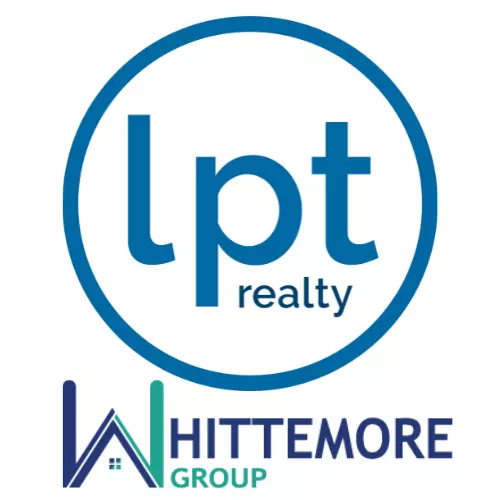Buying vs Renting a House
Buying vs Renting a House
When it comes to finding a place to live, one of the biggest decisions you'll have to make is whether to buy or rent a house. Both options have their advantages and disadvantages, and it's important to consider your personal circumstances and financial goals before making a decision. In this article, we'll explore the costs and benefits of buying and renting a house, so you can make an informed choice.
Costs of Buying a House
Upfront Costs
When you buy a house, there are several upfront costs to consider. These include:
- Down Payment: This is the initial payment you make towards the purchase price of the house. The amount will vary depending on the price of the house and your mortgage lender's requirements.
- Closing Costs: These are fees associated with the purchase of the house, such as appraisal fees, title insurance, and attorney fees. Closing costs typically range from 2% to 5% of the purchase price.
- ** Repairs and Renovations: **Unless you're moving into a brand new house, there may be repairs and renovations that you'll need to take care of. This could include fixing things that weren't addressed during the inspection period or personalizing the home to your liking. These one-time costs can add up, but they allow you to make the house your own.
Ongoing Costs of Owning a Home
Mortgage Payments
One of the ongoing costs of owning a home is the monthly mortgage payment. This is the amount you'll need to pay each month to repay your home loan. It's important to budget for this expense and ensure that you can comfortably afford it.
Property Taxes
As a homeowner, you'll also be responsible for paying property taxes. The amount will vary depending on the value of your home and the tax rates in your area. It's important to factor this cost into your budget.
Homeowners Insurance
Another ongoing cost of owning a home is homeowners insurance. This insurance protects your home and belongings in case of damage or theft. The cost of homeowners insurance will depend on factors such as the value of your home and the coverage you choose.
Maintenance and Repairs
As a homeowner, you'll also be responsible for the maintenance and repairs of your home. This includes things like fixing leaky faucets, replacing broken appliances, and keeping up with regular maintenance tasks. It's important to budget for these expenses and be prepared for unexpected repairs.
Benefits of Buying a House
Building Equity
One of the biggest benefits of buying a house is the opportunity to build equity. When you make mortgage payments, you're gradually paying off the principal balance of your loan. This means that over time, you'll own more and more of your home. Building equity can be a smart financial move, as it allows you to build wealth and potentially sell your home for a profit in the future.
Tax Benefits
Owning a home comes with several tax benefits. For example, you may be eligible for a homestead exemption, which can lower your property taxes. Additionally, you can deduct the interest you pay on your mortgage from your federal taxes. These tax benefits can help reduce your overall tax liability and save you money.
Rental Income Potential
If you're considering buying a house, you may have the opportunity to generate rental income. By renting out a portion of your home or purchasing a property specifically for rental purposes, you can offset some or all of your mortgage, taxes, and insurance costs. This can be a great way to generate passive income and potentially build wealth over time.
Creative Freedom
When you own a home, you have the freedom to make changes and improvements as you see fit. You can paint the walls, renovate the kitchen, or add a deck to the backyard. This creative freedom allows you to personalize your space and make it truly your own.
Sense of Belonging
Owning a home often comes with a sense of belonging to a community. You can participate in neighborhood events, join homeowners associations, and contribute to making your community a better place. This sense of belonging can enhance your overall quality of life and provide a sense of pride in your home and community.
Costs of Renting a House
Monthly Rent
When you rent a house, your main cost will be the monthly rent. The amount will depend on factors such as the location, size, and condition of the rental property. It's important to budget for this expense and ensure that you can afford it comfortably.
Pet Rent
If you have pets, some landlords may charge an additional fee known as pet rent. This is a monthly fee that covers the cost of having pets in the rental property. It's important to factor this cost into your budget if you have pets.
Renter's Insurance
While renter's insurance is not always required, it's highly recommended. Renter's insurance protects your personal belongings in case of theft, damage, or other unforeseen events. The cost of renter's insurance will depend on factors such as the value of your belongings and the coverage you choose.
Utilities
In some cases, the cost of utilities may be included in your rent. However, in many cases, you'll be responsible for paying for utilities such as electricity, gas, water, and trash collection. It's important to factor these costs into your budget when renting a house.
Limited Control
One of the disadvantages of renting a house is that you have limited control over the property. You may not be able to make changes or improvements without the landlord's permission. This can be frustrating if you want to personalize your living space.
Rising Rental Costs
Another disadvantage of renting is the potential for rising rental costs. When your lease is up for renewal, the landlord may increase the rent. This can make it difficult to budget and plan for the future, as you may not know how much your rent will increase each year.
Limited Housing Security
When you rent a house, you have limited housing security. The landlord can choose not to renew your lease or give you an eviction notice with a relatively short notice period. This can be stressful and disruptive, especially if you have to find a new place to live within a short timeframe.
In conclusion, the decision to buy or rent a house depends on your personal circumstances and financial goals. Buying a house allows you to build equity, take advantage of tax benefits, and have creative freedom. However, it also comes with upfront costs, ongoing expenses, and the responsibility of maintenance and repairs. Renting a house offers flexibility, no responsibility for maintenance and repairs, and lower upfront costs. However, it also means you're not building equity and have limited control over the property. Ultimately, it's important to weigh the pros and cons and choose the option that aligns with your long-term goals and lifestyle. If you have any questions or need assistance, feel free to call/text us at 850.320.7757 or email us at Admin@WhittemoreGroupRE.com
Categories
Recent Posts










GET MORE INFORMATION

![<!-- begin Widget Tracker Code --> (function(w,i,d,g,e,t){w["WidgetTrackerObject"]=g;(w[g]=w[g]||function() {(w[g].q=w[g].q||[]).push(arguments);}),(w[g].ds=1*new Date());(e="script"), (t=d.createElement(e)),(e=d.getElementsByTagName(e)[0]);t.async=1;t.src=i; e.parentNode.insertBefore(t,e);}) (window,"https://widgetbe.com/agent",document,"widgetTracker"); window.widgetTracker("create", "WT-JTWWXHJC"); window.widgetTracker("send", "pageview"); <!-- end Widget Tracker Code -->](https://cdn.chime.me/image/fs/cmsbuild/2022820/12/h200_original_12b23b22-4a2a-4f96-8df9-274c8346f371-png.webp)